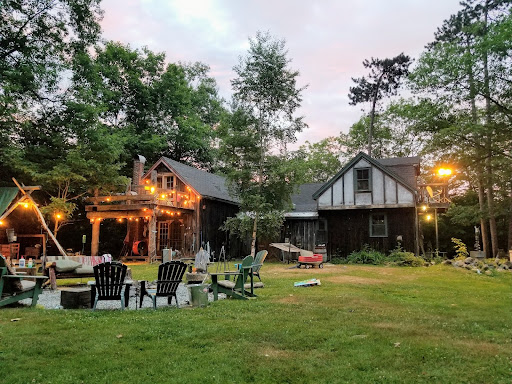Deer fencing can be a necessary component to protect your garden, keep ticks at bay, and prevent deer from entering your yard. While it’s possible to plant deer-resistant shrubs and perennials that don’t attract deer, it’s not always a guarantee that deer won’t visit your outdoor space—and along with stepping on your plants, they can even bring disease-carrying ticks with them.
Thankfully, there are a variety of choices for deer fencing that can be utilized without the need for planting deer-resistant species or spraying harsh chemicals to remove ticks. By fencing deer out, you can keep your plants safe, avoid chemicals, and even keep pets in your yard with the right options.
Below, learn all about different types of common deer fencing and repellants to keep these pests away from your outdoor space.
Considerations for Deer Fencing
Before choosing a deer fence, consider the following features and be sure to only shop at trusted sites such as www.deerfencing.com:
- Fence Height: Deer are great jumpers, capable of leaping 8 feet into the air. While some shorter fences can be effective, if deer are especially interested in your yard, a barrier-style deer fence at least this tall may be best. Many other kinds of fencing cannot reliably keep deer from crossing your property borders.
- Slack: Even as large animals, deer can try to push under fencing. Ensure there is no gap between your fencing and the ground. When using any type of loose fencing (for example, metal wire or polypropylene mesh), leave some slack. Let the extra fencing spill over the ground and pin it down with stakes.
- Repairs: Any damage incurred by barrier-style fencing will have to be repaired promptly: A compromised barrier is not effective. Deer are smart enough to find a breach in the fence and enter through it quickly.
- Pest Prevention: Depending on the type of fence you build, you can prevent other pests like rodents and small mammals. However, you must select barrier-style fencing that only has small openings. This can cost more, so decide whether the benefit is worth the extra cost.
- Durability: To increase durability, any metal deer fence you use should be galvanized, and any polypropylene fence should be UV-protected.
- Gates: Remember to include a gate or other means of accessing the area being fenced (and deer-proof the gate with proper latches.
Metal Wire Fencing
Metal wire fencing consists of heavy-gauge metal wires running horizontally and vertically that form rectangles, which are attached together at each intersection. This is one of the best options for the greatest number of gardeners, as it’s typically affordable compared to standard yard fencing. It’s also easy to install: Simply hammer metal posts (or install stronger wood posts) in the ground, then attach the wire to each post.
Polypropylene Mesh Fencing
Polypropylene mesh is a type of plastic fencing that’s attached to vertical posts to form a barrier, similar to metal wire. This option is the most affordable, but it may look less attractive than some other options. Installing polypropylene mesh tightly—rather than letting it become loose—can help it look more like standard fencing.
Electric Fencing
Electric deer fencing consists of a wire (or wires) strung low along a border that carries a mild shock. This type of deer fencing isn’t a constant barrier: Instead, it’s helpful to influence deer behavior, similar to an electric dog fence influencing your pet’s behavior. Some options are affordable, while others can become expensive depending on the brand.
Chain-Link Fence
Chain-link fences consist of sturdy metal wires that interlink in a zig-zag pattern, which are attached to metal posts that must be set in concrete underground. Like other conventional fences, chain-link fencing can also serve as a barrier to deer.
Privacy Fence
Solid wood privacy fences are typically at least 6 feet tall and composed of solid wood boards attached tightly together. This option can be the most effective at preventing deer, as its durability and view-blocking features make it difficult for deer to see plants and breach the fence.
Choosing a Deer Fence
Deer fencing varies in cost, visibility, effectiveness, and durability. First, assess your landscaping budget: If budget constraints are too burdensome, consider installing an affordable deer fence like metal wire, polypropylene mesh, or even an electric fence. On the other hand, if you’re looking for a long-lasting and attractive fence, other standard options like wood privacy fences can be very effective. Hiring a local fence company is a great way to ensure your fence is installed properly and built to code.

